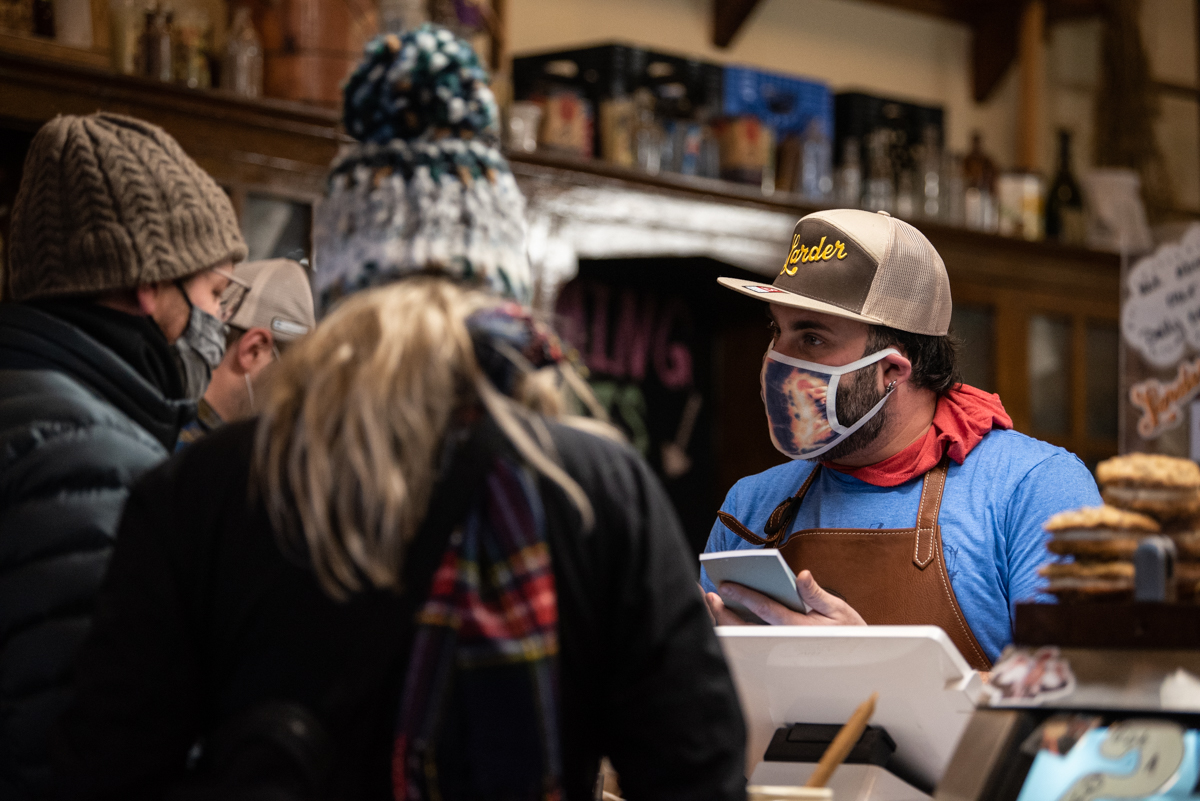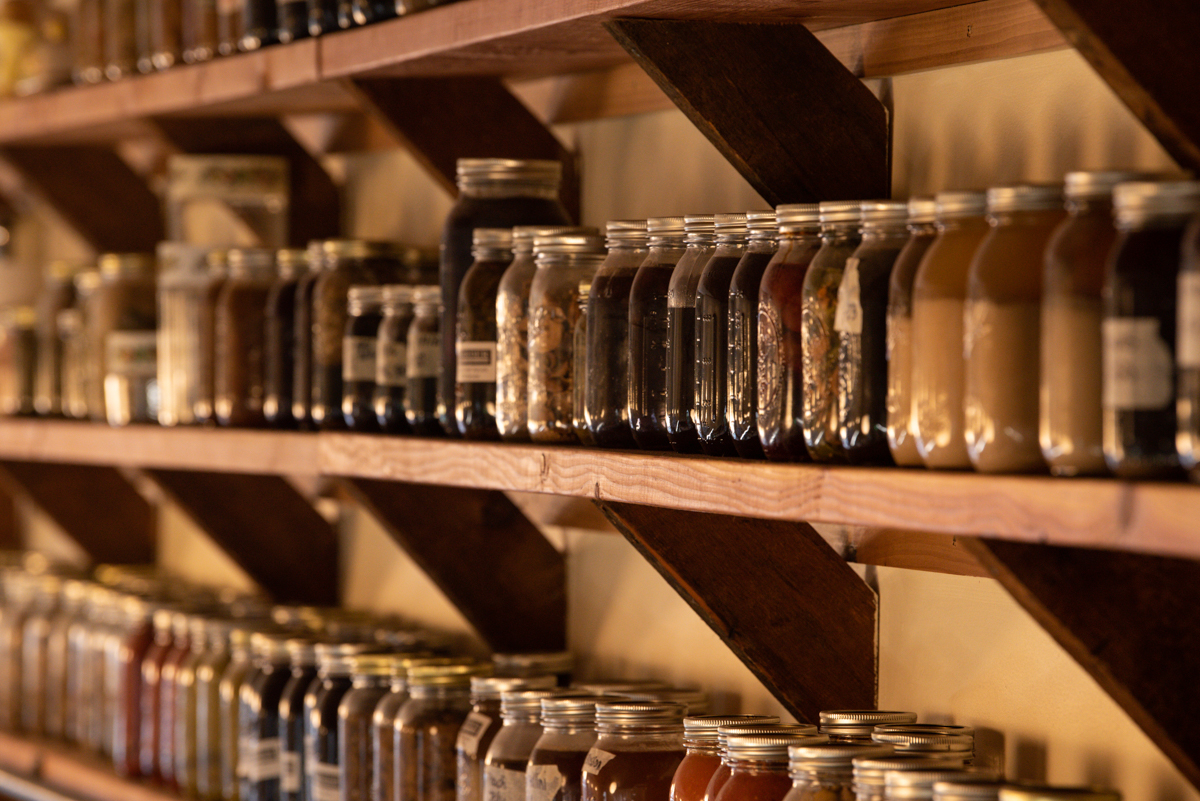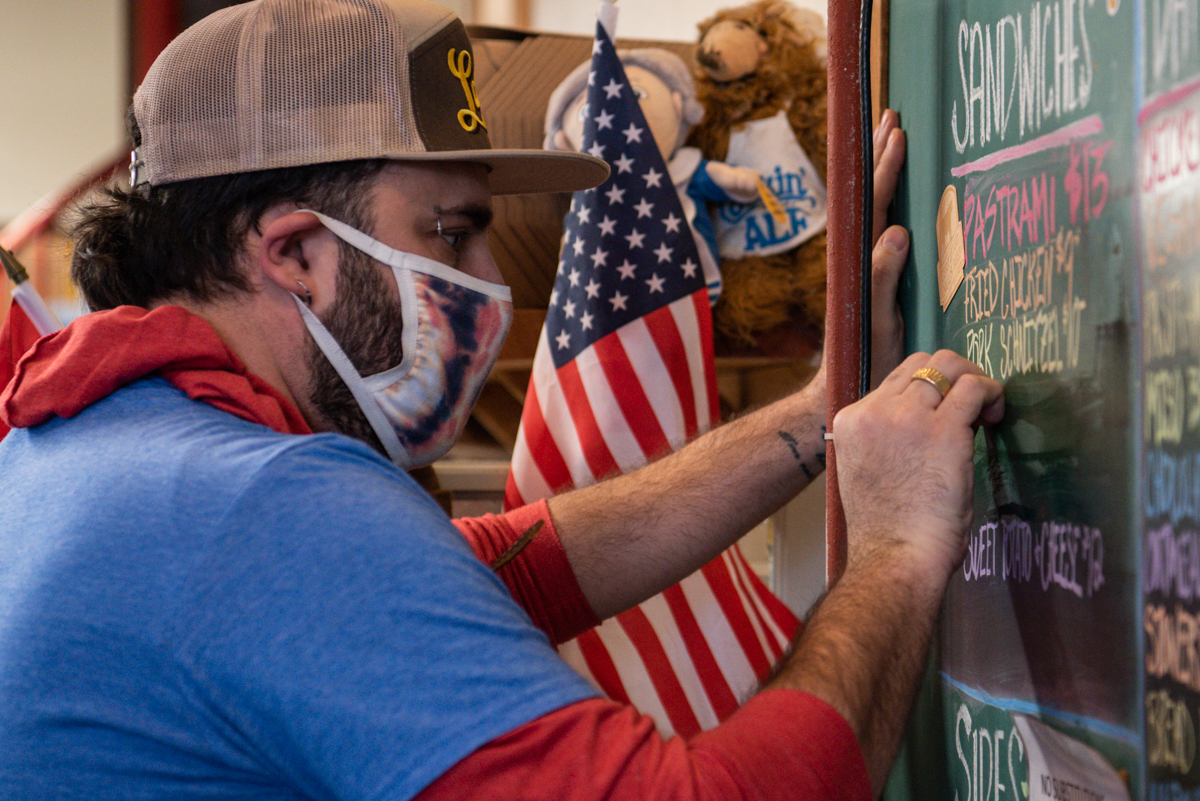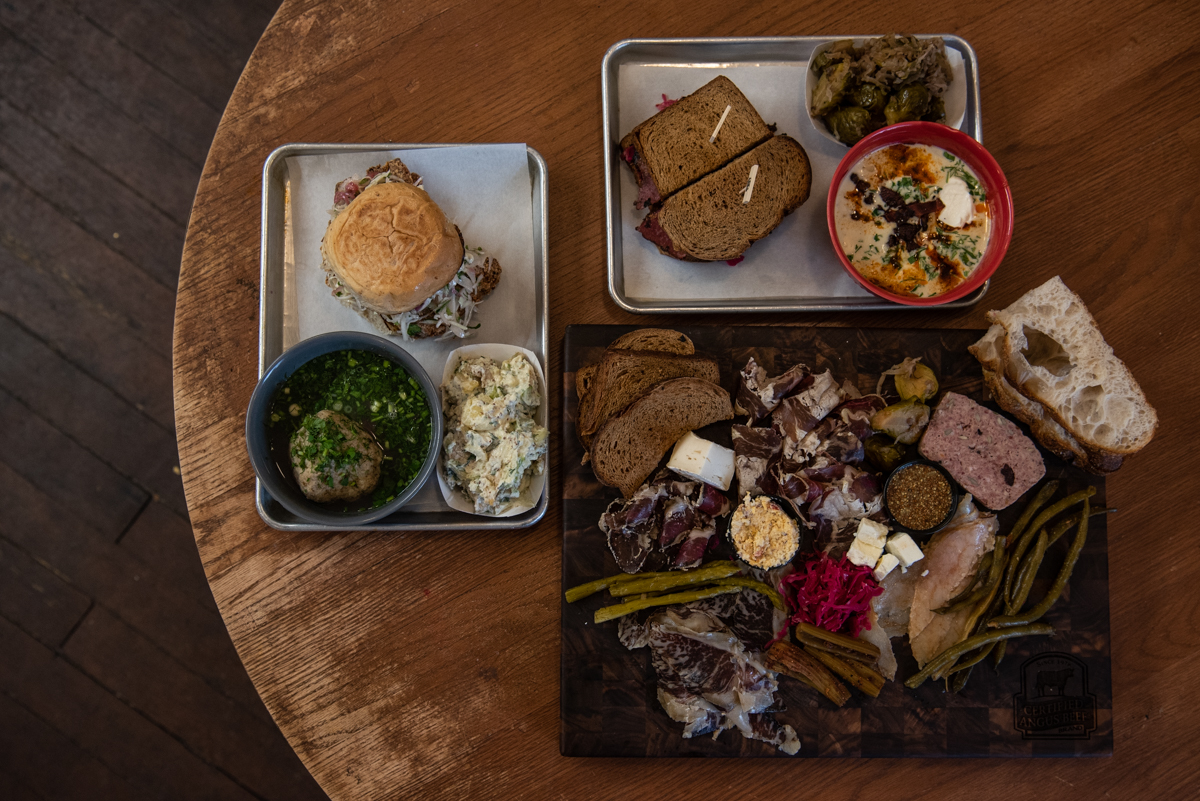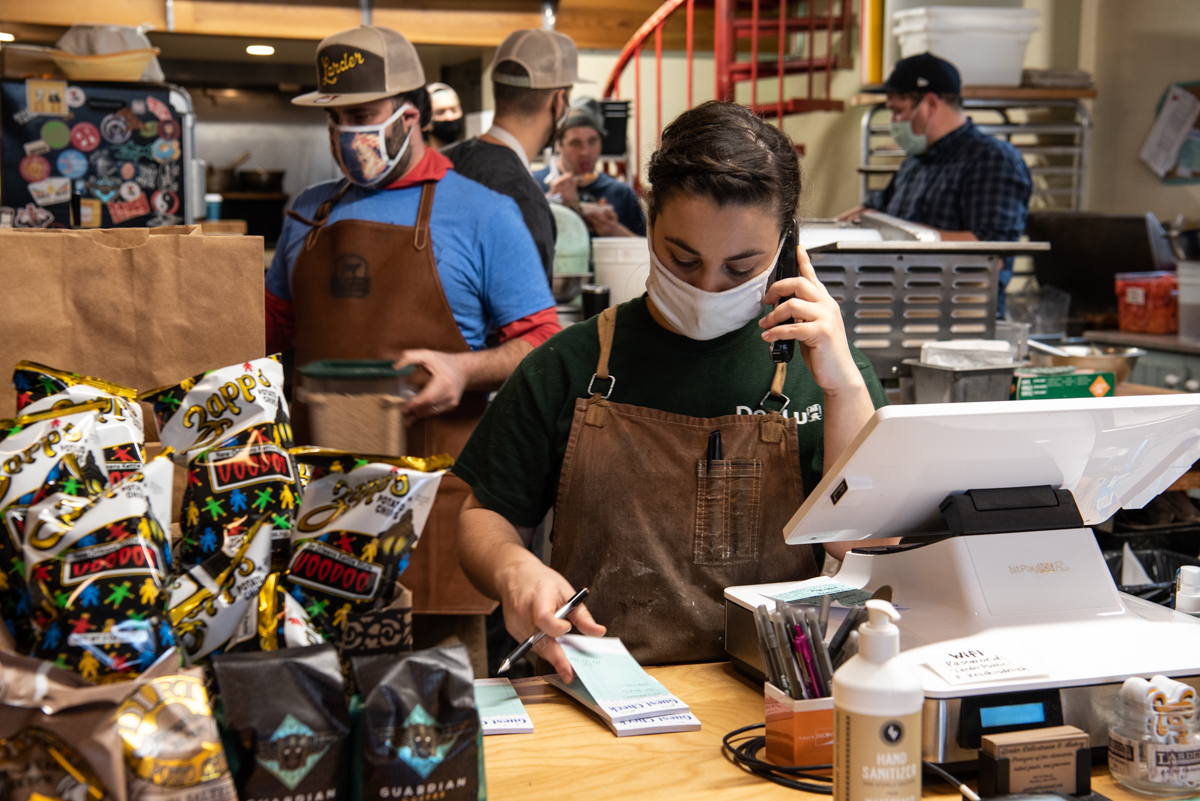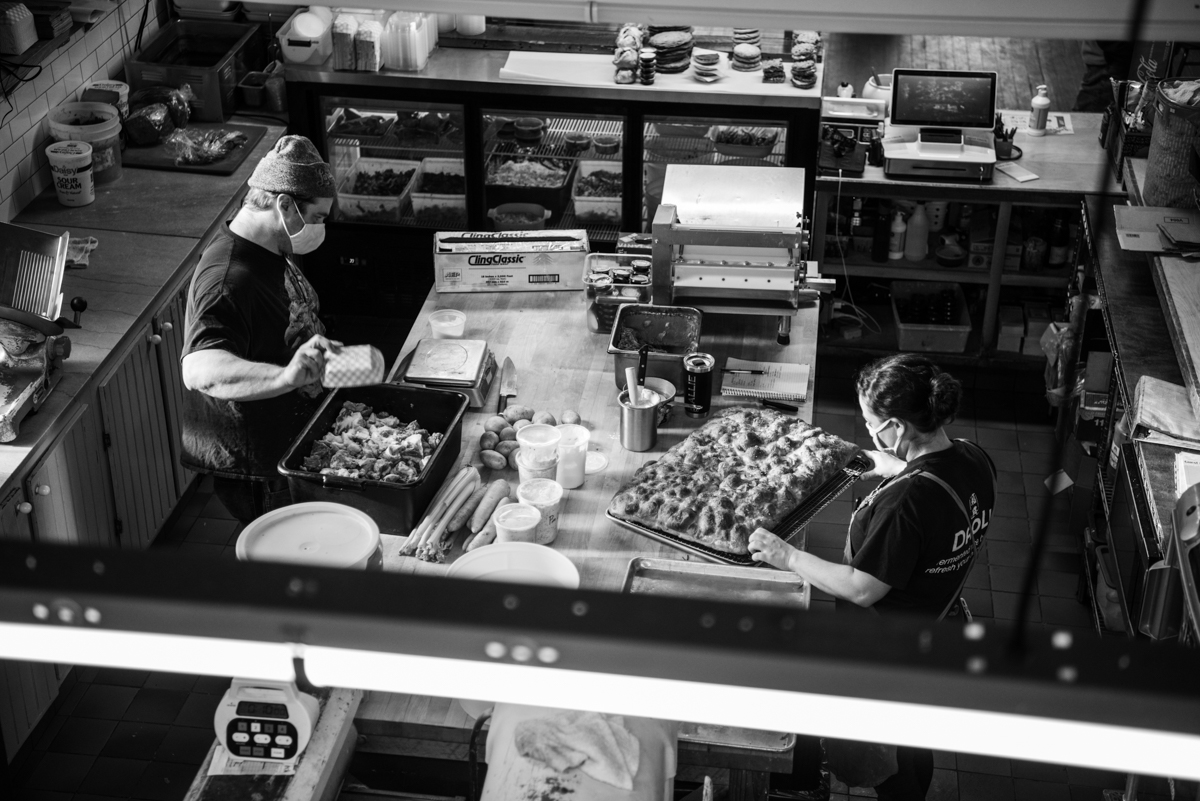By looking at the photos, you can almost hear the laughter and happy hum of the place.
These are the faces of Larder.
Some establishments have a couple photos with their origin and a few famous folks who’ve popped in over the years, but Larder showcases the community that supports them each day. Snapshots of family and neighbors, old friends and first-time guests enjoying their meal, laughing with friends or waiting in line for their favorite local bite, cover the south wall.
Rich in history with a modern twist, Larder Delicatessen & Bakery in Cleveland, Ohio, is where patrons are greeted with a smile. The 180-year-old converted firehouse radiates character—in décor, unique food options and the people serving everyone who walks through the doors.
In 2018, chef and owner Jeremy Umansky opened Larder two blocks from Lake Erie’s shore with his wife and pastry chef, Allie La Valle, and chef-partner, Kenny Scott.
Their goal? Recreate a delicatessen from 150 years ago, sourcing local food as much as possible and making everything in house. Influenced by Eastern Europe, Russia and Southeastern Asia, everything from bread to their famous Certified Angus Beef ® pastrami is scratch made daily.
On shelves affixed to the restaurant’s walls are jars of unique canned and preserved foods. The meat case features a variety of house-cured meats with distinct flavors. This above-ground root cellar is where the establishment earned its name.
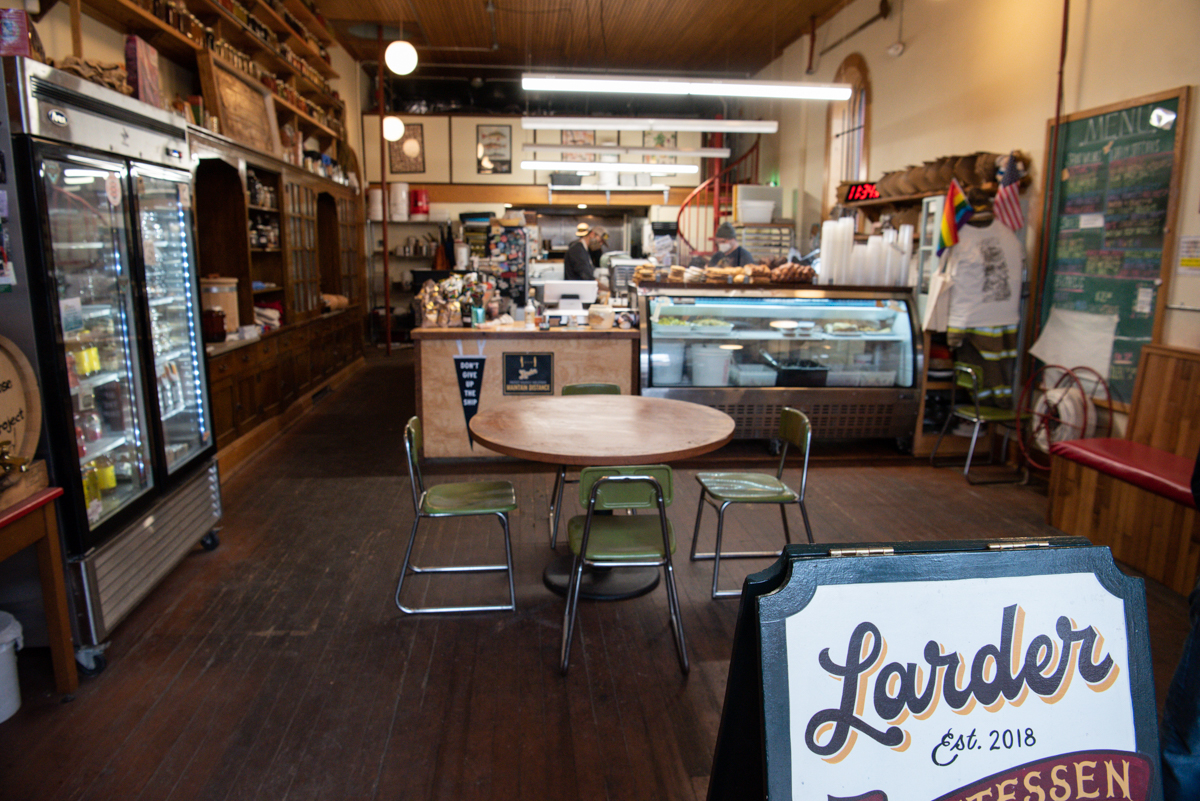
“A larder is where you would hang a ham or have a barrel of sauerkraut going. That’s exactly what we are and what we do,” Umansky says.
Larder is a throwback delicatessen, where food is craft-made from scratch. The proprietors are intentional with how cuisine is designed, sourced, eaten and enjoyed.
The Ohio native’s grandmother was a Kosher caterer and, at a young age, he fell in love with food and the art of cooking. Umansky studied at the Culinary Institute of America, but he left just shy of graduation to dive into agriculture and study under food writer and food activist Sandor Katz. Umansky’s passion for culinary preservation was born while working as land manager on a 40-acre farm in the Hudson Valley.
Today, the gastronomic scientist, forager and larder master enjoys sourcing local ingredients, unique preparation techniques and taste experiences using fungi and molds.
“We create food that’s incredibly flavorful, incredibly rich, and incredibly satisfying—from a satiation standpoint of the craving and the hunger while also soul fulfilling and satiating your wants and needs as an individual,” he says.
He calls it “putting modern sensibilities on archaic food traditions that people have been doing for thousands of years.”
Fisk Biggar visits Larder weekly for the changing daily menu and inviting ambience.
“Larder serves as a culinary flagship to show what Cleveland’s capable of and serves as a small business success story for the community,” Biggar says. “Especially in this time where restaurants and small businesses have been hit so hard, it’s an example of how to persevere and adapt in this climate, continuing to have great food and service in this community.”
Umansky serves his community with heart.
“Being able to feed people, that’s my life’s pursuit,” Umansky says. “We set out to do this not just for ourselves, but for our community.”
Before the pandemic, Larder’s tables were full and the warm atmosphere welcomed folks who’d come from near and far to enjoy the comradery and food. Today, that same community still supports the restaurant through its adjusted operating hours by popping in to say hello, and ordering the famous pastrami sandwich to go.
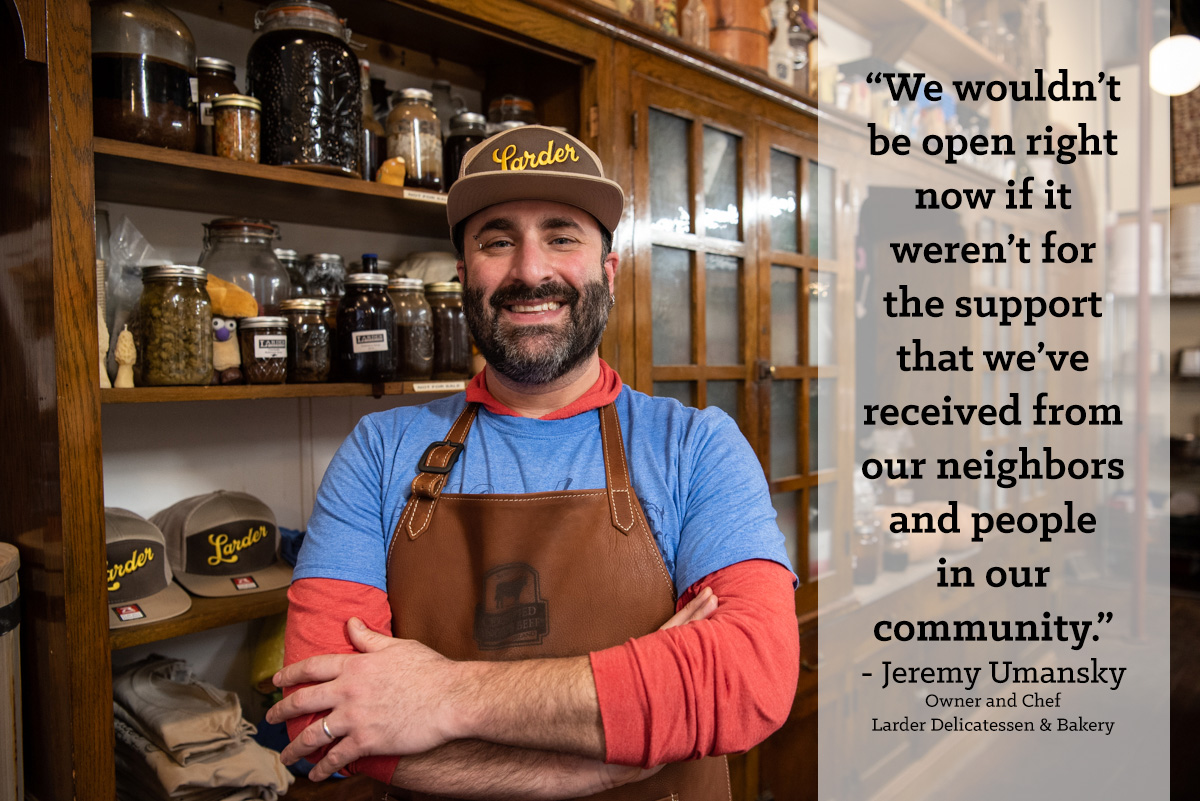
“We wouldn’t be open right now if it weren’t for the support that we’ve received from our neighbors and people in our community,” Umansky says.
People can help their own local establishment by supporting independently owned restaurants, which keeps dollars in the local community. Call ahead to order food for someone instead of giving a gift card. Show kindness to those who work within limitations and restrictions in the kitchen.
“Sometimes a little thing like a Facebook post saying, ‘I love the food at this place! You should check them out if you haven’t been there’ can mean wonders,” he says.
The tables in the dining room had been a place where community ties were strengthened. To see empty seats in Larder is heartbreaking, he says.
“Eating is a sensual and agricultural act,” Umansky says. “Based on that sensuality, that conviviality of agriculture and the need not to just feed yourself, but your family, your community, it’s devastating to not have chairs in Larder.”
Yet he holds on to hope.
He looks forward to bringing a charcuterie board he created to a full table, explaining its nuances to hungry customers; to helping clean up soda your kids spilled on the table; saying hello with a hug; and taking your picture—without a mask—to hang on the wall.
To learn more about #RestaurantChallenge, visit challenge.CertifiedAngusBeef.com to learn how you can support your favorite places.


